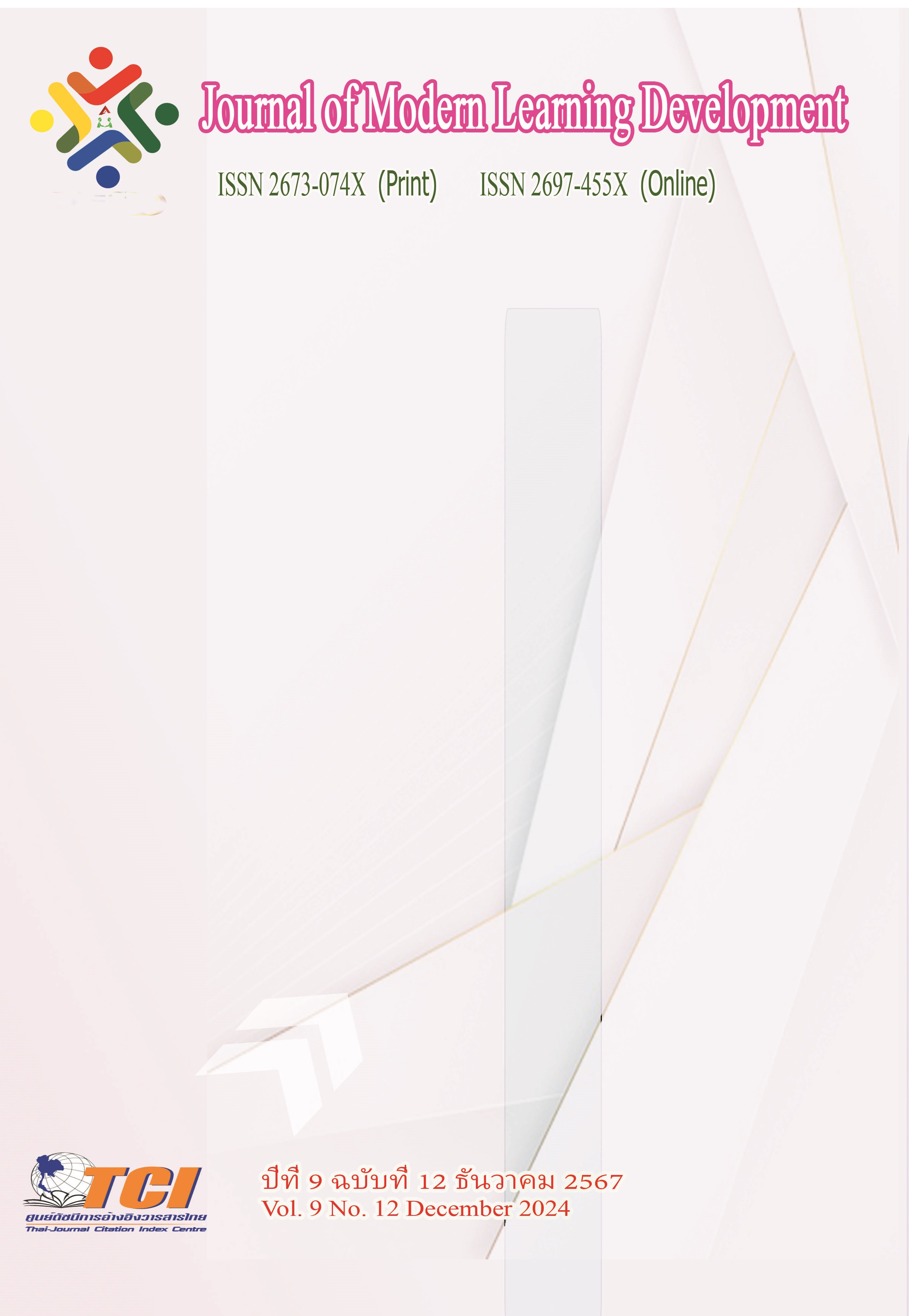Development of a Community Management Model to Enhance Community Mental Health Literacy for the Saraburi Province Health Network
Main Article Content
Abstract
Mental health literacy is essential for the quality of life of individuals and communities. Promoting mental health literacy within communities requires an appropriate process that involves the participation of all stakeholders. The mixed-methods research aimed to develop a community management model to enhance Community Mental Health Literacy for the Saraburi Province Health Network. The study was divided into three phases and conducted from September 2023 to August 2024. The sample consisted of 492 participants, including experts, experienced practitioners, and members of mental health networks in Saraburi Province. Research tools included semi-structured interviews, questionnaires, a manual for implementing the community management model, structured observation records, and focus group discussions. Data were collected through in-depth interviews, postal surveys, participatory observations in pilot areas, and focus group discussions. Data analysis utilized descriptive statistics, inferential statistics, and content analysis.
The results found that the community management model for enhancing mental health literacy includes two concepts, three principles, three objectives, seven development processes, and three evaluation methods. Factors supporting the success of this model include a strong volunteer network, the use of technology and community communication, the involvement of community leaders, and support from both the public and private sectors. The overall model demonstrated significant benefits and feasibility for implementation at a satisfactory level. Following the testing of the model, over 50% of participants reported awareness of mental health communication activities within the community, collaboration among networks in mental health initiatives, and progress in addressing community mental health issues. Feedback from the three pilot areas was consistent.
Recommendation, The Saraburi Provincial Quality of Life Development Committee should adopt this model as a strategy to promote the integration of collaboration within the health network concerning knowledge and resources. This approach aims to enhance community awareness, knowledge, and skills related to mental health, thereby effectively preventing and addressing mental health issues in Saraburi Province.
Article Details
References
กรมสุขภาพจิต. (2565). แนวทางการเสริมสร้างความรอบรู้ด้านสุขภาพจิตของประชาชน. นนทบุรี: บริษัท บียอนด์ พับลิสซิ่ง จำกัด.
กายสิทธิ์ แก้วยาศรี และ บุญมา สุนทราวิรัตน์. (2556). การพัฒนารูปแบบการเฝ้าระวังคัดกรองและดูแลผู้ป่วยจิตเวชในชุมชนจังหวัดเลย. วารสารวิจัยและพัฒนาระบบสุขภาพ. 15, 328-42.
กีรติยา อุ่นเจริญ. (2560). การมีส่วนร่วมของชุมชนในการดูแลผู้ป่วยโรคร่วมจิตเวชสารเสพติด ในเขตโรงพยาบาลส่งเสริมสุขภาพตำบลบ้านห้อม อำเภอเมือง จังหวัดนครพนม. สังคมสงเคราะห์ศาสตรมหาบัณฑิต. ปทุมธานี: หาวิทยาลัยธรรมศาสตร์.
บัณฑิต พิทักษ์. (2566). การพัฒนาระบบการดูแลผู้ป่วยจิตเภทในชุมชนโดยการมีส่วนร่วมของหน่วยบริการปฐมภูมิและภาคีเครือข่ายอำเภอชื่นชม จังหวัดมหาสารคาม. วารสารศูนย์อนามัยที่ 7 ขอนแก่น. 15, 38-52.
ศิลา จิรวิกรานต์กุล. (2567). การพัฒนาระบบเฝ้าระวัง และดูแลผู้ป่วยจิตเวชที่มีความเสี่ยงสูงต่อการก่อความรุนแรงในชุมชนโดยการมีส่วนร่วมของภาคีเครือข่ายในชุมชน จังหวัดบุรีรัมย์. วารสารสุขภาพจิตแห่งประเทศไทย. 32, 224-35.
สำนักงานสาธารณสุขจังหวัดสระบุรี. (2567). แบบรายงานการตรวจราชการกระทรวงสาธารณสุข ประจำปีงบประมาณพ.ศ. 2567 ประเด็นที่ 4 : สุขภาพกลุ่มวัยสำนักงานสาธารณสุขจังหวัดสระบุรี รอบที่ 1/2567. สระบุรี: กลุ่มงานสุขภาพจิตและยาเสพติด.
สุสารี ประคินกิจ, จรัสดาว เรลโนลด์ และ อรทิพา ส่องศิริ. (2562). การพัฒนารูปแบบการสร้างเสริมสุขภาพจิตในชุมชน ด้วยกระบวนการวิจัยปฏิบัติการแบบมีส่วนร่วม: กรณีศึกษาชุมชนหนึ่งในกรุงเทพ มหานคร. วารสารวิชาการสมาคม สถาบันอุดมศึกษาเอกชนแห่งประเทศไทย ฉบับวิทยาศาสตร์และเทคโนโลยี. 8, 7-17.
อมราพร สุรการ และ ณัฐวุฒิ อรินทร์. การดูแลสุขภาพจิต : การมีส่วนร่วมของชุมชน. วารสารมหาวิทยาลัยศรี นครินทรวิโรฒ (สาขาวิทยาศาสตร์และเทคโนโลยี). 6, 176-84.
อรัญญา สุริยะจันทร์. (2561). กลยุทธ์ดำเนินงานของภาคีเครือข่ายสุขภาพจิตชุมชน จังหวัดอุดรธานี. วารสารศูนย์อนามัยที่ 9 วารสารส่งเสริมสุขภาพและอนามัยสิ่งแวดล้อม. 12, 52-71.
อังคณา วังทอง, อนุชิต วังทอง และ กิตติพัฒน์ ทุติยาสานติ์. (2562). รูปแบบการบูรณาการดูแลและเสริมสร้างสุขภาพจิต โดยเครือข่ายชุมชน อำเภอหนองจิก จังหวัดปัตตานี. วารสารอนามัยสิ่งแวดล้อม และสุขภาพชุมชน. 4, 131-42.
Keeves, Peter J. (1988). “Model and Model Building,” Educational Research Methodology and Measurement An International Handbook. Oxford: Pergamon Press; 1988.
Krejcie, R.V., & D.W. Morgan. (1970). “Determining Sample Size for Research Activities”. Educational and Psychological Measurement. 30, 607–10.


